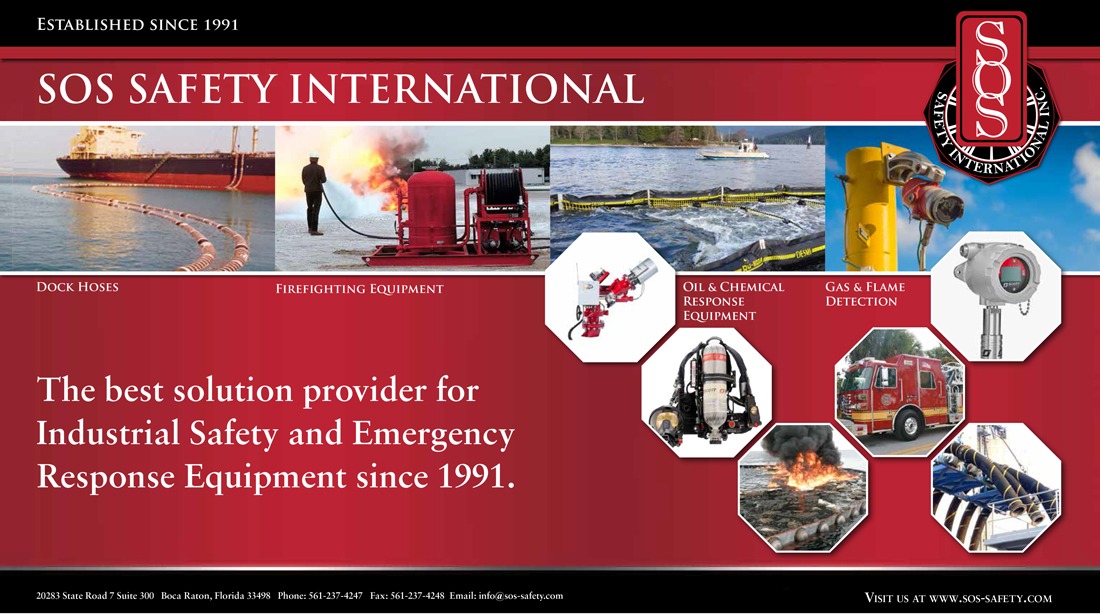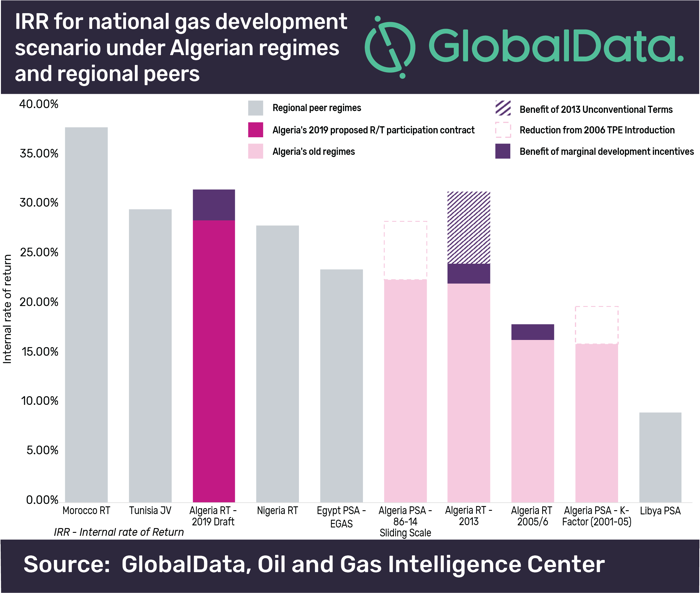The success of Algeria’s recently introduced hydrocarbons law bill depends on political resolution, analysts have said. The bill’s goal is to increase the attractiveness of the country’s petroleum fiscal framework after years of reduced foreign investment in the oil and gas sector.
The country needs to boost its hydrocarbons production on a long-term basis to support its economy, which has been hit hard since the reduction in oil prices in 2014, says GlobalData.
This year, the country will produce 1.15 million barrels per day of oil (declining trend) and 9.46 billion cubic feet of gas per day (some new projects may increase gas production between 2019 and 2022, but then the trend will be declining). Algeria is still overly dependent on hydrocarbons, which represent 40 per cent of government revenues and 95.6 per cent of exports.
The new bill reintroduces production sharing agreements (PSAs) and reduces the complexity of the previous petroleum framework by simplifying the structure of the fiscal terms. Prospective licensees can now sign a royalty/tax (R/T) participation contract, a PSA, or a risk service agreements (RSA).
Alessandro Bacci, Oil and Gas Analyst at GlobalData, comments: “The new R/T participation contract, in which licensees will continue to be restrained to up a 49 per cent participation stake and to pay surface tax, royalty, hydrocarbons revenue tax, and additional income tax, shows a significantly higher Internal Rate of Return (IRR) in comparison with the previous regimes’ IRRs.”
Bacci adds: “The framework for PSAs and RSAs is, in practice, very similar to the pre-2005 PSA/RSA framework. Licensees’ shareholding in a contract is not limited, with only their share of production (PSA) or revenue (RSA) limited to 49 per cent ─ while Sonatrach pays all the taxes on behalf of the licensees. However, the attractiveness of both the new PSAs and RSAs will depend on the specific terms of each future signed contract.”
The new bill is a step in the right direction, but improving the petroleum fiscal framework may not suffice as there are other hurdles at the administrative, political, and technical levels, which may prevent licensees from investing in Algeria’s upstream sector.
Bacci concludes: “At the political level, after the departure of President Abdelaziz Bouteflika in April 2019, political unrest remains, and the draft hydrocarbons law immediately drew significant protests. It is unclear whether the presidential elections, initially planned for July and now scheduled for December 2019, will get Algeria out of the impasse.”
For more information visit www.globaldata.com















